Enterprises declaring ingredients in products that are not consistent with their records is one of the reasons why Vietnamese shrimp, cashew, etc. products have been warned and recalled by the European Union (EU).
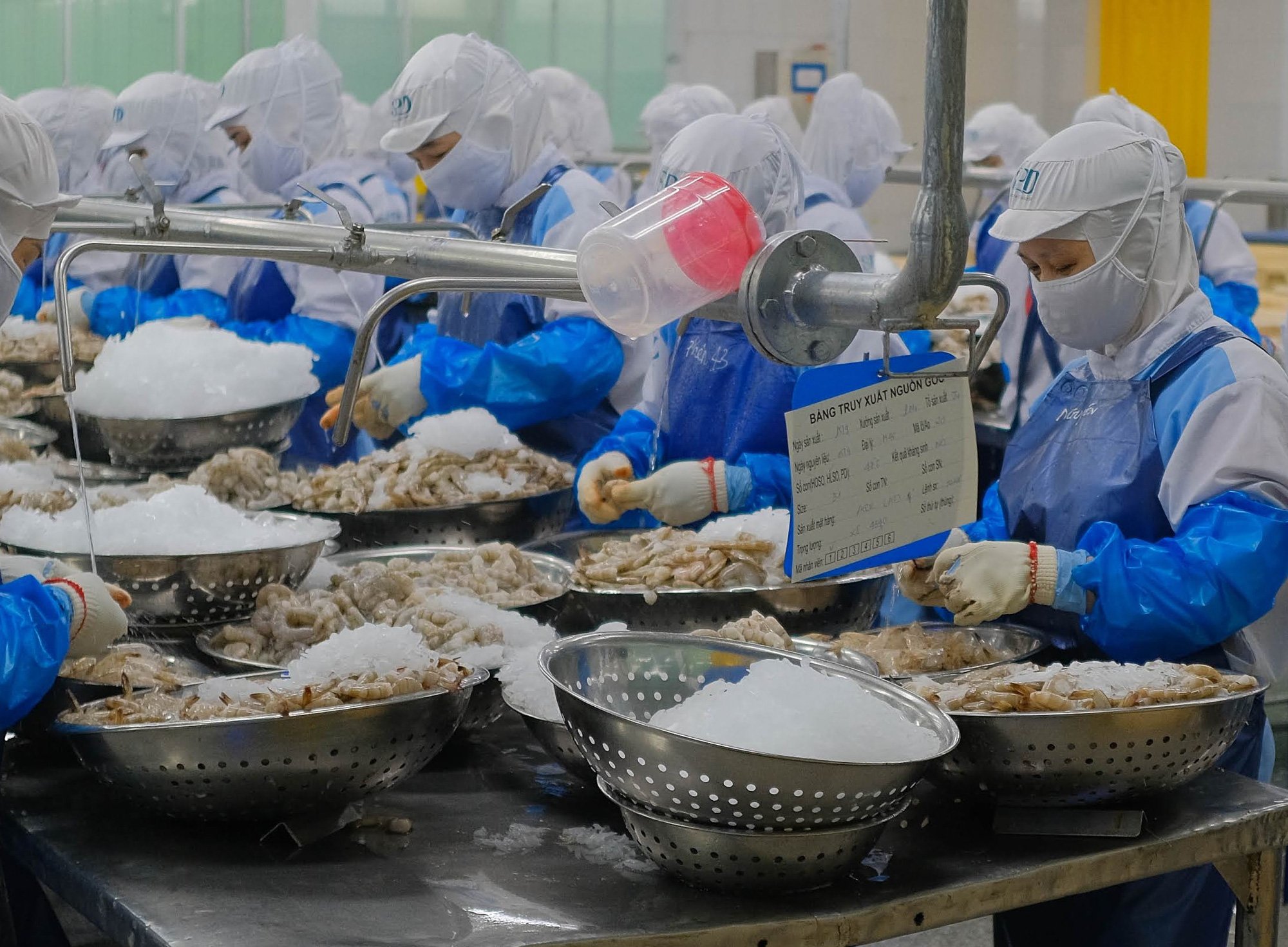
Workers processing shrimp for export - Photo: TAN LUC
On February 13, the Vietnam SPS Office (Ministry of Agriculture and Rural Development) said that the unit has just sent an official dispatch to the Import-Export Department ( Ministry of Industry and Trade ), along with the Vietnam Beer - Alcohol - Beverage Association, Vietnam Coffee - Cocoa Association, Vietnam Traditional Fish Sauce, Vietnam Cashew Association about the EU's warning on export products.
According to the Vietnam SPS Office, since the beginning of 2025, this unit has received 12 warnings from the EU Food and Feed Safety System for Vietnamese exported food and agricultural and aquatic products due to violations of EU regulations, leading to warnings, recalls or destruction of products.
The reason the EU warned of a recall is because the business has not registered to circulate products containing ingredients from "new foods" in the EU market.
Accordingly, Germany and Austria discovered "new foods" not licensed by the EU, such as basil seeds in soft drinks, dried basil seeds, and apple snail meat. These products were recalled or withdrawn from the market.
Second, the business declared the ingredients in the product inconsistently with the records, especially ingredients that can easily cause allergies to consumers.
Specifically, the company did not declare the allergen (egg in the batter) in the frozen breaded shrimp product, and did not declare peanuts in the organic cashew powder. Both of these products were recalled.
Third, the product contains illegal food additives or exceeds the prescribed level. For example, tuna steak products were found to contain food additive E 300 - ascorbic acid residue of 513mg/kg, while the maximum allowable residue is 300mg/kg.
Fourth, enterprises do not declare or conduct veterinary quarantine at the border gate for "mixed products" containing animal ingredients.
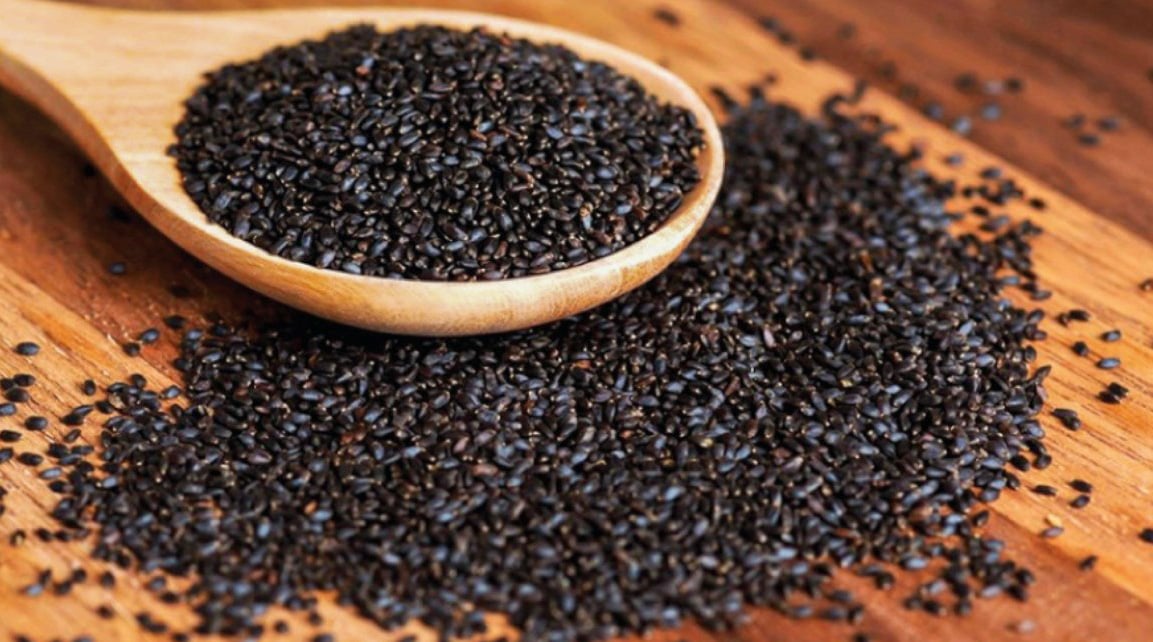
According to regulations, basil seeds are a "new product" so they must be licensed to be exported to the EU - Photo: TM
Speaking to Tuoi Tre Online , Mr. Ngo Xuan Nam, deputy director of the Vietnam SPS Office, said that the regulations on "new foods" and "mixed products" caused many businesses to be warned and have their products recalled because they did not fully understand EU regulations.
"Enterprises that are warned are usually small and medium-sized. On the contrary, large enterprises, especially FDI enterprises, all have specialized technical departments that can quickly access information about market changes," said Mr. Nam.
According to Mr. Nam, businesses that want to export to the EU need to learn about the "new food" regulations in regulation (EU) 2015/2283 and the list of licensed new foods in regulation (EU) 2018/1023.
For mixed food products containing ingredients of animal origin, the animal ingredient must be on the list of enterprises (approved countries) permitted to export animal products to the EU.
For labelling of foods with allergenic potential, businesses must follow the regulations in Article 21 of Regulation (EU) 1169/2011. As for additives, businesses may only use substances on the list of permitted additives in Annex II of Regulation (EC) 1333/2008.
In response to the EU's warnings, the Vietnam SPS Office recommends that agencies and associations recommend that businesses in the management sector carefully study market regulations before exporting to avoid risks for businesses.
Source: https://tuoitre.vn/tom-hat-dieu-che-bien-bi-canh-bao-thu-hoi-vi-ho-so-khai-mot-dang-doanh-nghiep-lam-mot-neo-20250213103829709.htm


![[Photo] Prime Minister Pham Minh Chinh and Prime Minister of the Kingdom of Thailand Paetongtarn Shinawatra attend the Vietnam-Thailand Business Forum 2025](https://vphoto.vietnam.vn/thumb/1200x675/vietnam/resource/IMAGE/2025/5/16/1cdfce54d25c48a68ae6fb9204f2171a)
































![[Photo] President Luong Cuong receives Prime Minister of the Kingdom of Thailand Paetongtarn Shinawatra](https://vphoto.vietnam.vn/thumb/1200x675/vietnam/resource/IMAGE/2025/5/16/52c73b27198a4e12bd6a903d1c218846)












































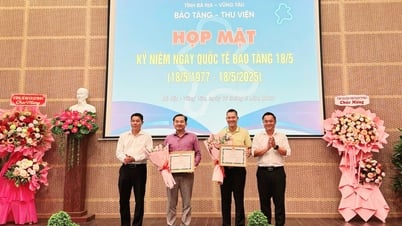

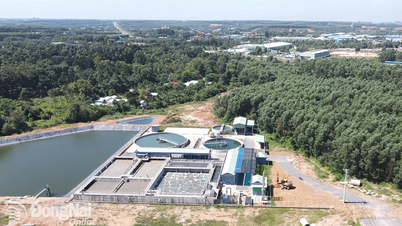

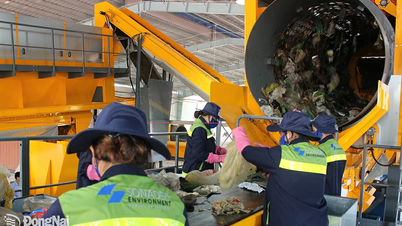









Comment (0)